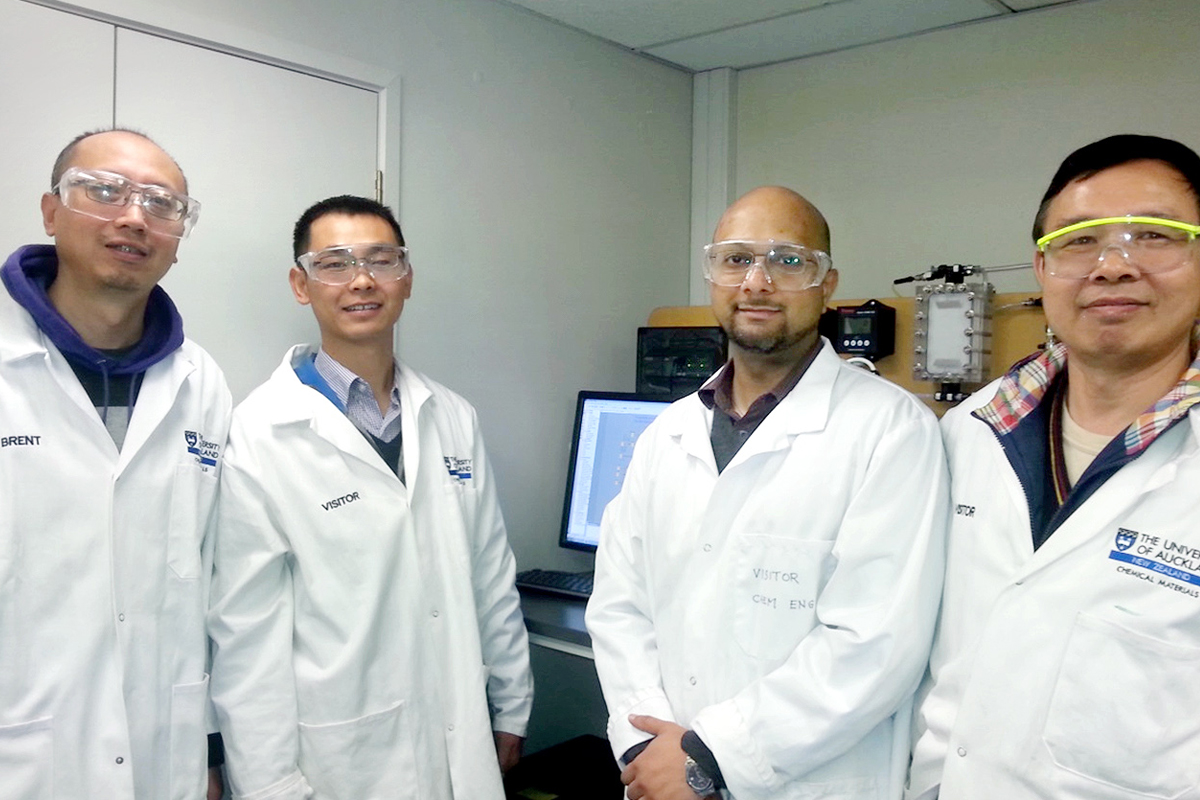After three years of support, HERA Foundation is pleased to report the close out of Scholarship Recipient Shoulong Dong’s doctoral project.
Shoulong’s R&D was focused on the development of an online engineering framework to aid engineers and researchers to carry out preliminary design exercises and performance evaluation.
Developing an Expert Design Tool (EDT) as part of a past Industry Development program – AGGAT, which was focused on exploring the Organic Rankine Cycle (ORC).
This support has resulted in the delivery of a beta version EDT to give potential ORC developers timely access to relevant data and information during early conceptual stages of design. Giving recommendations for technical based decisions – a step that in the long term avoids costly re-work during the build out phase.

Driving innovation within the NZ metals industry
ORC has long been considered a promising technology for converting low-grade heat sources into electricity. This is an exciting prospect given the increasing demand to reduce fossil fuel reliance and embrace renewable energy resources. However, the ORC design is a knowledge-intensive procedure with a variety of design variables and operation constraints that normally need large-scale expert interventions.
From 2012 to 2017, HERA ran a R&D project to explore the potential ORC might hold for our NZ metals industry. Facilitating a team of experts, universities and industry partners both nationally and abroad to look into the opportunity further.
During this time, creating an internal controls research team with the University of Auckland (of which Shoulong was a part of). This team was focused on developing control logic and process control models, and up until December 2018 Shoulong continued to receive scholarship support as part of our commitment to his doctorate deliverable’s.
This project involved several aspects, such as expertise extraction, modeling and simulation, algorithm development, and software integration.
The expertise came from several research domains including turbines, heat transfer, control systems, materials/fluids selection and process configurations. Different component models were developed and validated in order to simulate various ORC processes and evaluate their performance. And, artificial intelligence approaches and optimisation algorithms were proposed and implemented to support the decision-making during the ORC design procedure. Different modules were then integrated and deployed under a Python programming environment.
Supporting and celebrating future engineers
For HERA and it’s AGGAT program at the time, this project was about creating a user-friendly design tool for members involved in ORC development in New Zealand. Enabling greater uptake of ORC design capability in our membership and ultimately a competitive design offering as an industry in the energy sector.
General Manager Industry Development Boaz Habib saying “We’re very proud of what we’ve been able to accomplish through this project.”
“Shoulong not only created a beta-version of this design tool but also advanced it into the realms of artificial intelligence applications to increase performance and predictability. It’s projects like these that stretch our boundaries as an industry and grow us beyond business as usual.”
Of his time spent as a HERA Foundation Scholarship Recipient, Shoulong went on to add “I’m so thankful for the support I received from HERA Foundation and Boaz – I feel very happy to have been given the opportunity to be involved in this project.”
“During this time I’ve been able to attend four conferences to present my research work to both domestic and international audiences. I’ve since completed two conference papers and two journal papers – of which one has been submitted to Applied Energy.”
“Moving forward I’ll be working on developing an ontology for ORC design. It’s a novel attempt in this field aimed at identifying all relevant concepts and their relationships in order for knowledge exchange, reuse, and management to occur. I also have two more journal papers planned for completion in the following few months,” he said.